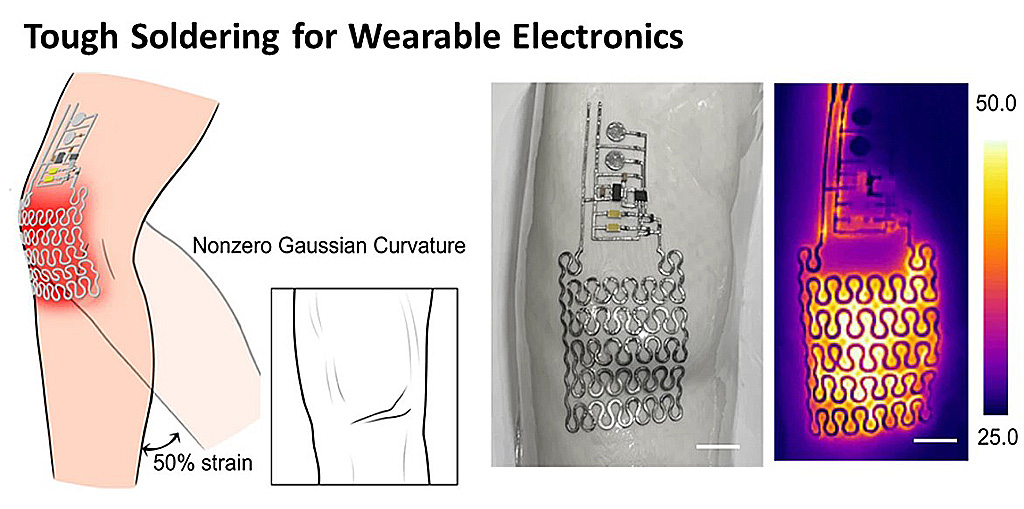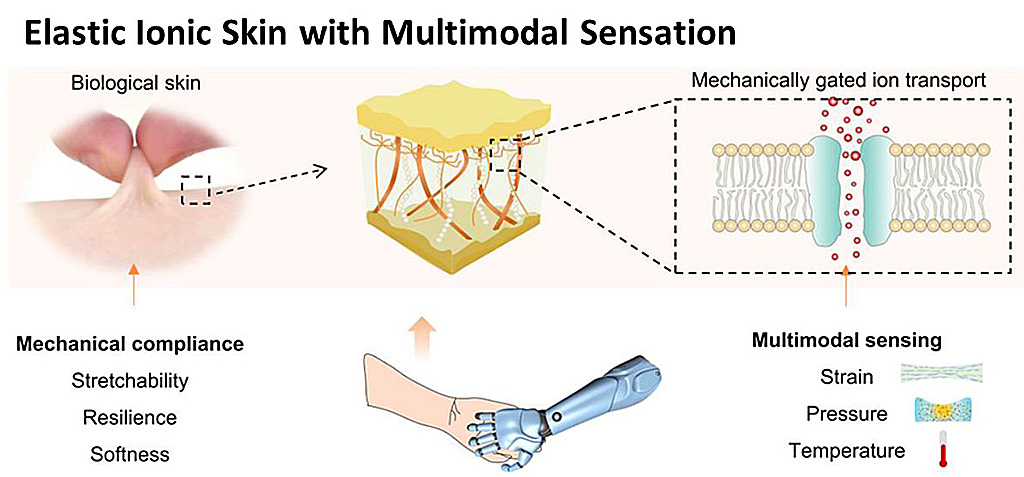
The application of wearable technologies in personalized health management and medical treatment has attracted significant attention. On the one hand, various applications have been realized on the developed wearable devices including physiological state monitoring, disease prevention and diagnosis, and health data management. On the other hand, the rapid progress of personalized health management generates new demands on the multifunctionality of wearable devices, for example, to maintain function under large and frequent deformations when the device is equipped on human body, and to monitor diverse physiological parameters simultaneously with minimum energy supply.
To address the abovementioned challenges, Prof. Yao Xi’s lab in the Department of Biomedical Sciences reported their recent progress on wearable electronics for healthcare management. Tough soldering technologies and corresponded materials have been developed to enable the chip-integrated wearable electronics which show a record-breaking maximum strain before electrical failure and small resistance changes over a large range of strains without encapsulation. This work has been published at Nature Communications, for which the first author is Ai Liqing, a PhD student in Prof. Yao’s lab. They also reported a bioinspired elastic ionic skin which shows similar mechanical compliance as human skin and holds a unique capability of multimodal sensation. With the help of machine learning algorisms, the variations of external stimuli from voltage signals generated by the ionic skin can be decoupled, making the ionic skin promising in human-machine interactions. This work has been published at Advanced Materials, for which the first author is Lyu Dong, a PhD graduate and now a postdoc in Prof. Yao’s lab.
